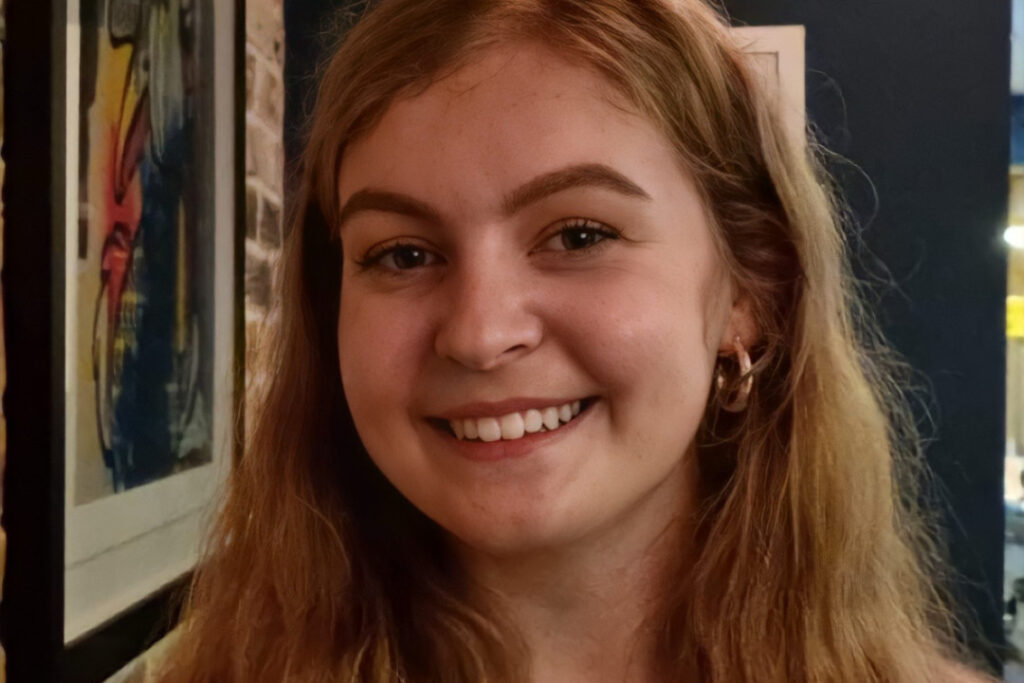University of Sheffield

Sarah Hool is a PhD student at the University of Sheffield, studying in Professor Walter Marcotti’s lab. RNID is funding her research project into age-related hearing loss.
Sarah will be focusing on cells called supporting cells within the inner ear and investigating how they change with ageing. She will then investigate whether these changes contribute to loss of the sound-sensing hair cells in the inner ear, and therefore hearing loss.
More about Sarah’s work
Sarah graduated with a degree in Biomedical Science in 2020 and a master’s degree in Clinical Neurology in 2021, both from the University of Sheffield. She completed a dissertation on the hearing disorder known as ‘Hidden Hearing Loss’ and learnt a lot about the underlying processes that may cause different types of hearing difficulties.
This sparked Sarah’s interest in hearing loss research, and she began to volunteer with the Tinnitus UK. She spoke to many different people with tinnitus on their webchat/help line and was able to attend their conference.
The role of [inner ear] supporting cells in age-related hearing loss
Read about Sarah’s research projectSarah’s approaches to hearing research
It is estimated that as many as 1 in 5 people in the UK have some degree of hearing difficulty. This makes it one of the most common health conditions and it can affect people of all ages. Therefore, the demand for new treatments to help the vast number of affected individuals is high. This means that any advances in hearing research have the potential to help large groups of people.
Furthermore, hearing loss can have a range of negative effects on all areas of a person’s life. This can include communication difficulties leading to social isolation, or problems at work or finding jobs. Hearing can be a large part of a person’s life and I believe research into this area is very important.
Hair cells are located within the inner ear and are responsible for allowing us to hear sound. Most current research is looking into these hair cells and trying to figure out how their dysfunction might lead to hearing loss. However, there are also cells known as ‘supporting cells’ which surround these hair cells and provide them with nutrients.
Therefore, it could be possible that problems with these supporting cells could cause problems in the hair cells, and lead to hearing loss. Therefore, it would be beneficial to learn more about supporting cells and see whether they are linked to hearing loss, in particular to see if their function declines with age, and whether this contributes to the problems with hair cells that lead to age-related hearing loss.
I am very appreciative to have received this studentship as it has allowed me to continue my scientific research career. I am very excited to spend the next three years learning more about age-related hearing loss and hope to continue even after this time. I greatly admire RNID for supporting so many students in their research. They are having such a large impact and are helping us get even closer to discovering ways to help the many people with hearing difficulties.
My time volunteering with Tinnitus UK allowed me to learn so much about how tinnitus, and other related disorders, affect a person’s life. I would answer calls and webchats from individuals with tinnitus, and most of the time there was no definite solution we could give them, as currently tinnitus has no cure.
This is similar for many other hearing disorders. The lack of options for people with hearing difficulties motivates me to want to work towards better treatments for them for the future.